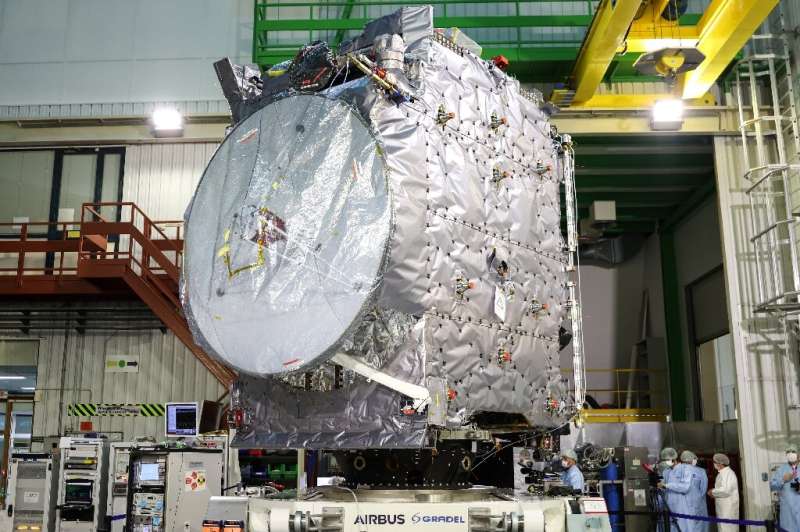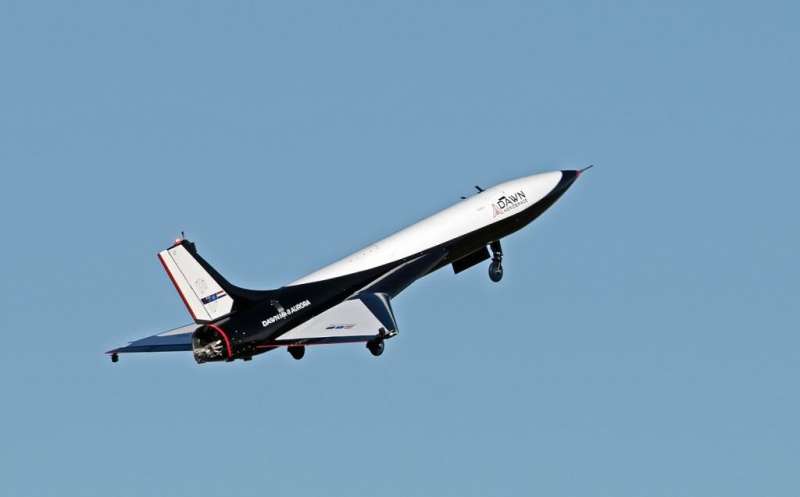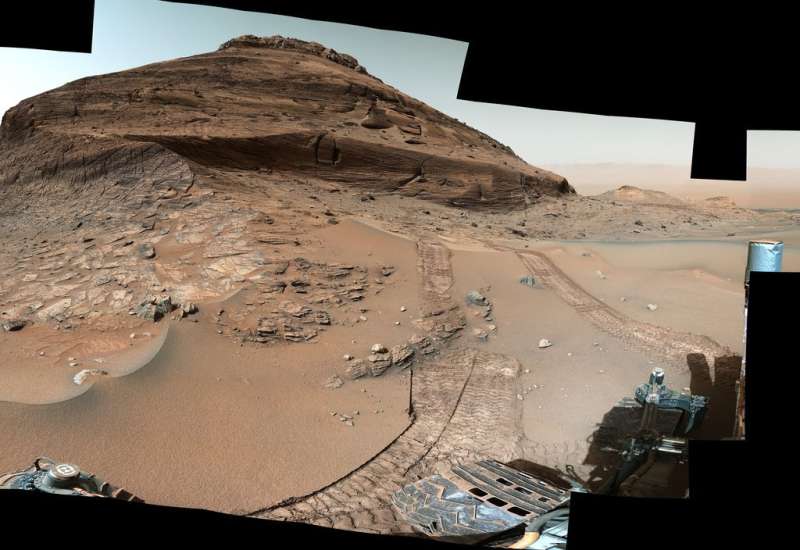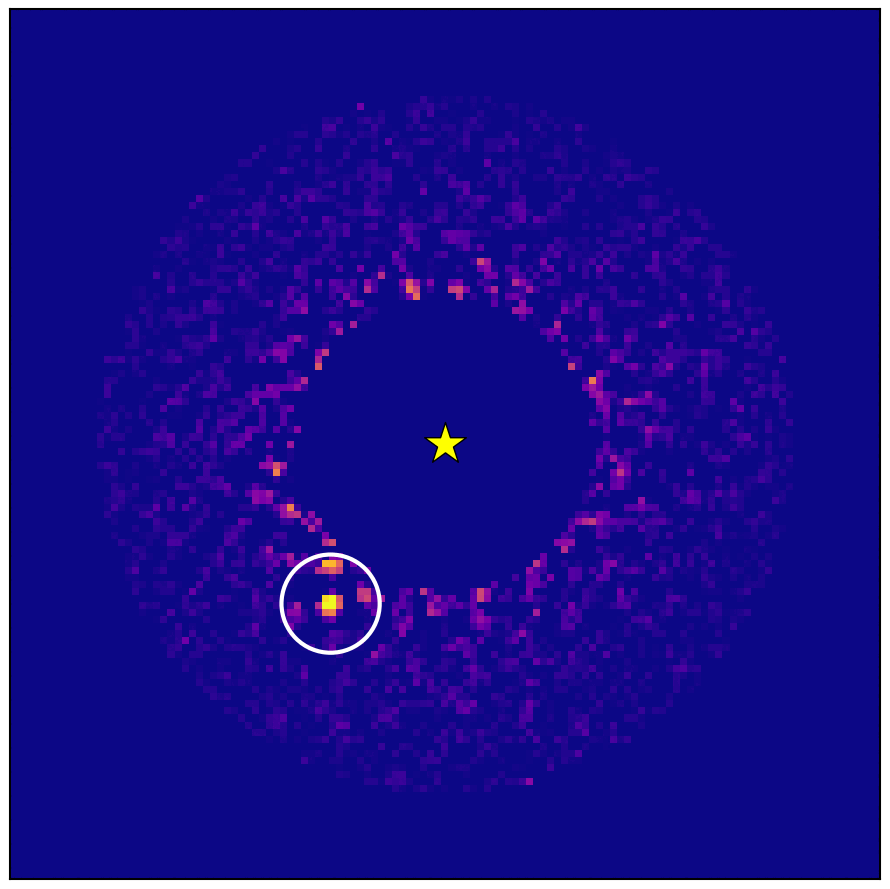
Copernical Team
'The Space Economy' - an Essential Guide for Investors and Entrepreneurs
 Remarkable advances in private launch capability and space-based technologies are creating vast new opportunities for businesses and investors in low-Earth orbit - and beyond. A new book by Space Capital founder and managing partner Chad Anderson plumbs the depths of these new opportunities, while also explaining the challenges and risks that need to be considered.
"The Space Economy: Capi
Remarkable advances in private launch capability and space-based technologies are creating vast new opportunities for businesses and investors in low-Earth orbit - and beyond. A new book by Space Capital founder and managing partner Chad Anderson plumbs the depths of these new opportunities, while also explaining the challenges and risks that need to be considered.
"The Space Economy: Capi Ingenuity Mars Helicopter completes 50th flight
 The history-making rotorcraft has recently been negotiating some of the most hazardous terrain it's encountered on the Red Planet.
NASA's Ingenuity Mars Helicopter has completed its 50th flight on Mars. The first aircraft on another world reached the half-century mark on April 13, traveling over 1,057.09 feet (322.2 meters) in 145.7 seconds. The helicopter also achieved a new altitude reco
The history-making rotorcraft has recently been negotiating some of the most hazardous terrain it's encountered on the Red Planet.
NASA's Ingenuity Mars Helicopter has completed its 50th flight on Mars. The first aircraft on another world reached the half-century mark on April 13, traveling over 1,057.09 feet (322.2 meters) in 145.7 seconds. The helicopter also achieved a new altitude reco Juno Marks 50 Orbits Around Jupiter
 NASA's Juno mission completed its 50th close pass by Jupiter on April 8, 2023. Since the spacecraft arrived at the giant planet in 2016, its JunoCam imager has captured spectacular views of Jupiter, and its large moons Ganymede, Europa, and Io. Many of those images were processed by volunteers called citizen scientists.
To mark the 50th close pass, NASA teamed up with Google Arts and Cultu
NASA's Juno mission completed its 50th close pass by Jupiter on April 8, 2023. Since the spacecraft arrived at the giant planet in 2016, its JunoCam imager has captured spectacular views of Jupiter, and its large moons Ganymede, Europa, and Io. Many of those images were processed by volunteers called citizen scientists.
To mark the 50th close pass, NASA teamed up with Google Arts and Cultu Search for alien life extends to Jupiter's icy moons
 Could vast, long-hidden oceans be teeming with alien life in our very own Solar System?
A new chapter in humanity's search for extraterrestrial life opens on Thursday as Europe's JUICE spacecraft blasts off on a mission to investigate the icy moons of Jupiter.
First discovered by Italian astronomer Galileo Galilei more than 400 years ago, these ice-covered moons are so far from the Sun t
Could vast, long-hidden oceans be teeming with alien life in our very own Solar System?
A new chapter in humanity's search for extraterrestrial life opens on Thursday as Europe's JUICE spacecraft blasts off on a mission to investigate the icy moons of Jupiter.
First discovered by Italian astronomer Galileo Galilei more than 400 years ago, these ice-covered moons are so far from the Sun t Spotlight on Ganymede, Juice's primary target
 A key focus of ESA's Jupiter Icy Moons Explorer (Juice) will be Ganymede: Jupiter's largest moon, and an ideal natural laboratory for studying the icy worlds of the Solar System.
b>Why focus on Ganymede? br> /b>
There are a handful of key reasons Juice will home in on Ganymede.
Firstly, Ganymede is thought to have a salty ocean beneath its icy shell. This ocean may be large enough
A key focus of ESA's Jupiter Icy Moons Explorer (Juice) will be Ganymede: Jupiter's largest moon, and an ideal natural laboratory for studying the icy worlds of the Solar System.
b>Why focus on Ganymede? br> /b>
There are a handful of key reasons Juice will home in on Ganymede.
Firstly, Ganymede is thought to have a salty ocean beneath its icy shell. This ocean may be large enough Europe's Jupiter probe set for new launch attempt
 The European Space Agency's JUICE mission to explore Jupiter's icy, ocean-bearing moons will again try to blast off on Friday, a day after the first launch attempt was called off due to the threat of lightning.
The spacecraft is scheduled to launch on an Ariane 5 rocket from Europe's spaceport in Kourou, French Guiana at 1214 GMT, 30 seconds earlier than Thursday's aborted effort.
If suc
The European Space Agency's JUICE mission to explore Jupiter's icy, ocean-bearing moons will again try to blast off on Friday, a day after the first launch attempt was called off due to the threat of lightning.
The spacecraft is scheduled to launch on an Ariane 5 rocket from Europe's spaceport in Kourou, French Guiana at 1214 GMT, 30 seconds earlier than Thursday's aborted effort.
If suc Weather delays launch of Europe's Jupiter mission by 24 hours (Update)

The launch of the European Space Agency's JUICE mission, which aims to discover whether Jupiter's icy moons are capable of hosting extraterrestrial life, was postponed on Thursday for 24 hours due to bad weather.
The launch was called off just minutes before the planned lift-off at 1215 GMT from Europe's spaceport in Kourou, French Guiana, because of the threat of lightning in the cloudy skies overhead.
The next attempt will take place at 1214 GMT on Friday, the European Space Agency said.
Stephane Israel, the CEO of French firm Arianespace which provided the Ariane 5 rocket, said that with just minutes to spare, "a large mass of clouds approached and we absolutely could not proceed with the launch due to the risk of lightning".
For lift-off to go ahead, three parameters must get the green light: the launcher, the probe and the weather—which was "the final suspense," he told AFP.
A rocket-powered spaceplane completes a successful test flight

Access to space is getting easier and more accessible as more and more platforms are coming online that can significantly decrease the cost of getting into Earth's orbit or even beyond. Now, another company has taken a step forward in making inexpensive, reusable access to space a reality. Dawn Aerospace, which operates out of the U.S., New Zealand, and the Netherlands, has successfully tested a prototype spaceplane.
This isn't Dawn's first success, as the company already has satellite propulsion systems in orbit on 15 different satellites. It isn't even its first successful space plane test—they had previously completed some testing using jet engines. However, it is the first time the company has successfully tested a rocket-powered plane.
The series of three tests happened at the end of March at the Glentanner Aerodrome in New Zealand, where the plane successfully fired its rocket engine. Clocking it at over 170 knots and 6,000 ft of altitude may not seem like much, but it is a first step for the technology.
NASA's Curiosity Mars rover gets a major software upgrade

The update brings loads of improvements, the most significant being new driving capabilities.
Years in the making, a major software update that has been installed on NASA's Curiosity rover will enable the Mars robot to drive faster and reduce wear and tear on its wheels.
Wobbling star found in Gaia-Hipparcos data confirmed to host exoplanet

Data from ESA’s star-mapping Gaia spacecraft has allowed astronomers to image a gigantic exoplanet using Japan's Subaru Telescope. This world is the first confirmed exoplanet found by Gaia’s ability to sense the gravitational tug or ‘wobble’ a planet induces on its star. And the technique points the way to the future of direct exoplanet imaging.
